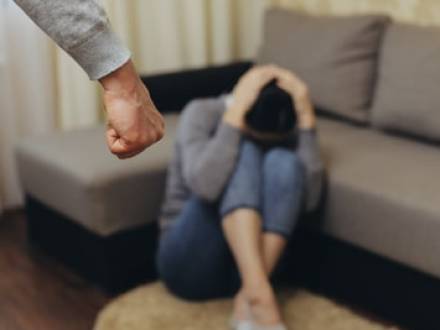Theory of Accountability and Domestic Abuse Survivors
 A little-known law in Illinois allows people to be punished for the criminal acts of another if they were present at the scene. Those who are especially vulnerable to the effects of this law are survivors of domestic violence. The story of a woman who has been in an Illinois prison since 1993 for murders committed by her boyfriend–despite a vigorous criminal defense–illustrates this point.
A little-known law in Illinois allows people to be punished for the criminal acts of another if they were present at the scene. Those who are especially vulnerable to the effects of this law are survivors of domestic violence. The story of a woman who has been in an Illinois prison since 1993 for murders committed by her boyfriend–despite a vigorous criminal defense–illustrates this point.
The young woman met her boyfriend when she was 17 and he was 35. The boyfriend told her that he was a truck driver, but she would find out months into the relationship that he was actually a drug dealer. One day, the young woman was forced by her boyfriend to go with him to a rival dealer’s home who supposedly owed him money. Things went sideways, and the boyfriend killed the dealer, along with the dealer’s wife and baby. Years of physical abuse convinced the young woman that she would also be killed as her boyfriend forced her at gunpoint to place jewelry and money into a bag.
When the police arrested both the young woman and her boyfriend, under the Illinois "theory of accountability," they did not have to prove she killed anyone to charge her with murder and send her to prison for life. Years later, the boyfriend told reporters that the young woman should never have been in prison, saying, "All these years, I’ve felt bad about it all." While statistics are scarce, it is widely believed that accomplice liability cases like this are common.
It is difficult to explain the hold abusers have over their victims to law enforcement, prosecutors, judges, juries, and the public. During a recent Illinois legislative hearing that proposed limits to the theory of accountability, one state representative pushed back by saying, "You are accountable for the people you do nasty things with."
While most of us understand that hanging around with a bad crowd can lead to bad things happening to us, domestic violence adds layers of complexity. If you have been charged with a violent crime under the theory of accountability, you need strong, experienced legal representation from a Chicago criminal defense attorney. Your lawyer can challenge the theory of accountability and build a strong defense on your behalf.
What is the Illinois Theory of Accountability Law?
The theory of accountability is detailed in Illinois (720 ILCS 5/5-2) (from Ch. 38, par. 5-2). The law essentially states that a defendant will be held legally accountable for the conduct of the principal when the defendant has the mental state to commit the crime. This means the prosecutor must only show that the defendant had the mental capacity to commit the crime—even if they did not do so. Under People v. Ruiz, the court ruled that active participation in an offense is not a prerequisite to guilt by accountability.
Defenses to the Theory of Accountability
A person charged under the theory of accountability certainly has fewer available defenses, but this does not mean there is no defense. Illinois does not recognize "accessory" to a crime—the defendant is either accountable (equally guilty) or not accountable (not guilty). "Helping" commit a crime is a broad area. One potential defense to the theory of accountability lies in the "knowing" part. If a person drives their friend to the corner market to buy cigarettes with absolutely no idea he is planning to rob the store, the defendant does not meet the requirements under the law.
Even though the defendant helped by driving the car, if he had no idea what his friend was going to do, he is not guilty of the underlying crime. Unfortunately, the many facets of domestic violence are not addressed under the theory of accountability. Women who have been abused for years are often terrified to refuse to drive a car or otherwise help in some small way.
Speak to an Experienced Cook County, IL Criminal Defense Attorney About Accountability
When you are facing severe penalties for a crime you did not commit; it is easy to feel overwhelmed and hopeless. A knowledgeable Chicago, IL, criminal defense attorney from Luisi Legal Group can help you through this difficult time while building a solid defense on your behalf. Contact Luisi Legal Group at 773-276-5541 to set up a free consultation with an attorney who is in Chicago criminal courts daily and has a well-earned reputation as a skilled litigator.





 773-276-5541
773-276-5541










